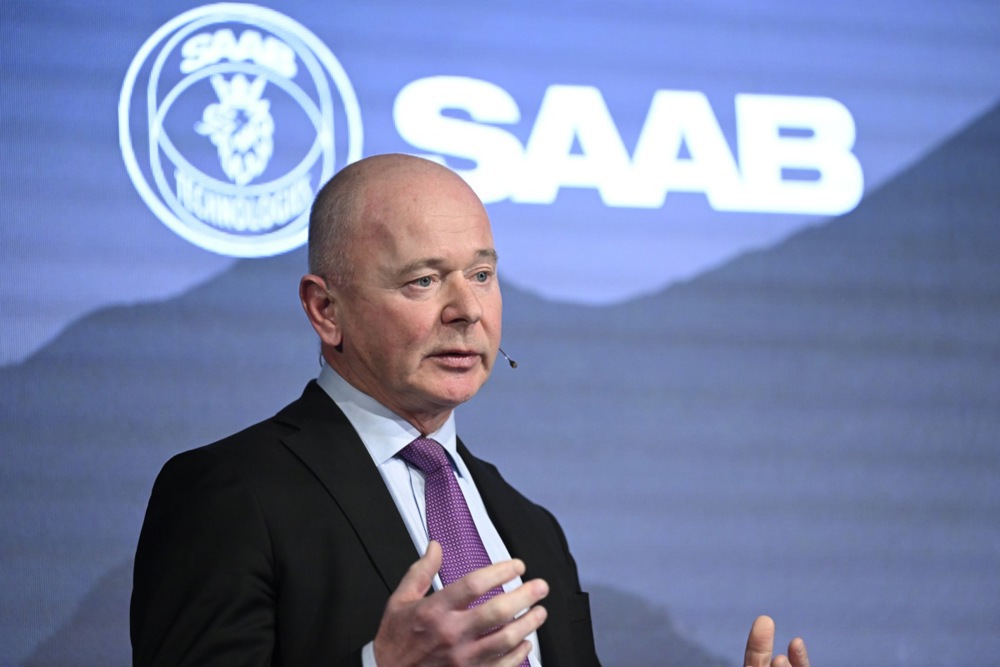Europe’s defence contractors need assurances that capitals will continue to pay for defence gear so they can justify long-term investment to build out production capacity, Saab CEO Micael Johansson told Euractiv.
This interview was first published in Firepower, Euractiv’s weekly defence newsletter for pro subscribers.
Speaking just days before he takes over as president of the Aerospace, Security and Defence Industries Association of Europe (ASD), the main Brussels lobby group for the bloc’s defence sector, the Swedish executive was clear that more than the current rush of orders is necessary to sustain the industry’s investment drive.
“If you want an ammunition capability that can ramp up quickly in a conflict situation – an ever-warm factory – there will be a premium to pay for having it ready, and those commitments are needed from governments,” he said.
That long-term perspective is needed to make sure an end to the war in Ukraine doesn’t immediately prompt governments to “go back to the time of ‘peace dividends’,” he said. “That is a bit different from specific contracts. We have to agree with governments that we will never allow ourselves to go below critical mass again.”
Over recent years, the bloc’s defence majors have reported a boom in sales. Some, such as Rheinmetall, made massive investment in new facilities to produce ammunition, artillery systems and missiles to help restock national silos and make up shipments for Ukraine. But not everyone can afford to wager huge sums on new production lines.
Earlier this week, NATO’s Secretary-General Mark Rutte called for increasing air and missile defence capabilities by 400%, while the European Commission wants EU countries to “re-arm” by 2030.
A serious plan for rearmament also needs to come with priorities for what to focus on and where, said the Saab boss: “If the demand goes down, we have to agree which capability will be [a priority and] used to the level that we can actually start up again”.
“We can ramp up production more,” he said. “But we need spending plans to go quickly into capability needs and acquisitions. Some will lead to huge investments for the industry – at Saab, we are prepared to do that.”
Johansson also said the Swedish producer of fighter jets is relatively well-positioned to weather a trade war with the United States.
“Our line of business is a bit more resilient because we do carry a bit more stock than normal businesses,” he said “I’m not saying it won’t have an effect, but we are a little bit more resilient.”
“Tariffs are not good of course. Plus, we do not know whether agreements under which defence equipment is exempt from tariffs and taxes are still valid.”
A future growth area for contractors such as Saab is also around investment in Ukraine’s arms industry.
Senior European Commission officials have talked about integrating Europe’s industry more with Ukraine, with the likes of Germany’s Rheinmetall and Norway’s Kongsberg signing production deals.
“I hope defence capabilities will be a part of building up the country again. Over time we’ll also start benefiting from the technologies they have,” said Johansson.
(bts)
